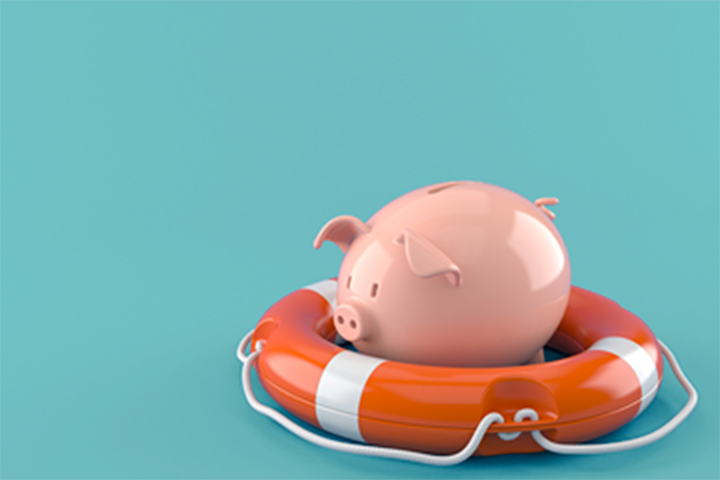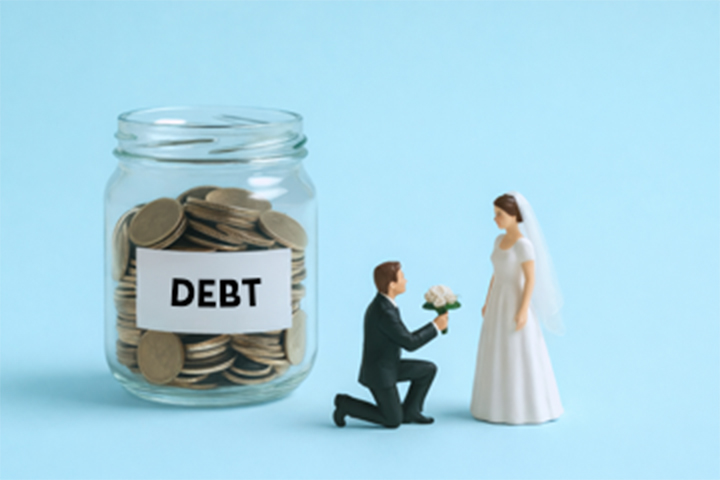First Aid for Your (Financial) Administration

Keytrade Bank
keytradebank.be
July 07, 2020
(updated January 24, 2022)
5 minutes to read
You've been filing your tax return online for years, but you still receive those fat official envelopes in the post. You've been paying your kids' school fees online for years, but you still have to extract the (paper) invoice from your kids' (paper) school calender. Sound familiar? You're not alone.
Paperless living and working will soon be the norm. We have been hearing this for several decades now. In practice, what we've been doing for all those years is closer to 'less paper' than 'paperless'. This means we often end up keeping double records; paper and digital both.
How can you address this? Decluttering coach Nele Colle and her team help people to declutter and organise their homes and workspaces. Not just so they know what's in their wardrobe or toolbox, but also to get a handle on their (digital) administration.
1. What is the best way to organise your paperwork?
"What works for one person won't work for everyone," warns Nele Colle. "One method is to first gather all your bits of paper in one place. Now sort the documents by type. Be careful not to be too detailed or you'll end up with each sheet of paper in its own pile. Start by creating several general categories such as:
- Banking
- Insurance
- Retirement
- Career (certificates, contracts)
- Property (subscriptions, utilities)
- Medical
- Warranties
- Taxes
"It is important at this stage not to ask, 'What should I do with this piece of paper or document?' Just focus on creating piles and categories at first, otherwise you will give up before you're well and truly started."
"Is everything sorted into piles? Now tackle them a pile at a time. One pile each day, for example. Decide right away what must be done for each document in the pile; paying it, checking it, replying, storing or throwing it away. Throw out anything you no longer need or that doesn't require action immediately. It is best to store papers in folders, rather than simply dumping them in boxes or hanging files. Scanning is even better."
Nele herself also has a VIP folder for Very Important Papers. This contains her wedding certificate, birth certificates, passports, etc. "You don't need them often, but when you do, you have to be able to find them fast."
"Don't forget to label your folders clearly. For paperwork, it's important that you aren't only one who knows what is stored where. Others should be able to find their way round too."
2. What about digital documents?
Digitising everything you can offers many benefits. It saves space, your printer can retire early and you'll find things (more) easily. Are you still receiving paper documents? If so, ask the sender about digital alternatives. Digital files are preferable to paper ones. However, don't forget to either make regular backups or synchronise the documents automatically. Do you consider digitisation too much work? Just make sure you are on top of your paperwork first and then see what you can digitise, step by step.
"The easiest is to create a folder for all your records on your computer or in the cloud. You can split this into sub-folders, like the categories above. You can also give each document a name, using the format yyyy-mm-dd-subject.pdf, for example", she continues. "Some people also use their email folders as storage, but this can be risky if your account gets hacked. If you want to use this method anyway, be sure to only store non-critical documents in your mailbox."
“"Scan any papers you receive in the post. No scanner? Do you have a smartphone? In that case, no problem. There are plenty of free apps that can scan documents, bundle them and move them to the right folder immediately. Of course, first you must ask yourself, 'Do I really need to keep this?' And only then, 'Do I really want to keep it?' The less paperwork (including digital files), the better."
3. Are there any paper documents that need to be kept permanently?
You are not legally permitted to throw away certain papers, even if you also have a digital copy:
- Documents that are part of your general medical history, such as vaccination booklets or your blood type card
- Diplomas and professional degrees
- Birth and adoption certificates, acknowledgement of parentage
- Documents relating to legal or other forms of cohabitation, cohabitation contracts, marriage contracts, marriage certificates or divorce decrees
- Notarial deeds
- Deeds of gift
- Wills and documents relating to an inheritance
Some other documents may be discarded as long as you preserve a digital copy, however. For example, as a private individual, you may throw out paper invoices if the scanned invoice is readable and the authenticity (of the source) and integrity (of the content) cannot be disputed. Are the documents sensitive or are you unsure? In that case, keep the originals.
4. What about tax records, warranties, bank statements, etc.? How long exactly must I keep these?
There is no single answer to this. Furthermore, the rules are different for private individuals than for companies. As a private individual, you must keep copies of your tax returns for at least seven years and invoices as proof of warranty for two years. Find out exactly how long you must keep what records.
5. What about joint documents?
"It is vital that others be able to consult your records in an emergency. This is why clear labelling and organisation are so important. Make solid arrangements about who stores what and in which locations," continues Nele Colle. "One solution is to employ shared online folders or accounts, with user settings that allow both parties to access the necessary documents."
6. What about highly sensitive information, such as passwords?
An account for government services, another for your telecom provider, one for your energy supplier… It's true that such portals can be useful places to retrieve or store data or documents. On the other hand, each account means yet another password, too.
You probably also have a cartload of passwords you use for various online tools, programs and services. One way to keep track is to collect them all in a password vault. Then the only password you'll need to remember is the password to that digital vault.
Tip: how do I create strong passwords?
7. Any more great tips?
- I myself create handy overviews for my banking, insurance, loans, subscriptions and pension savings. That ensures I don't forget anything.
- Open emails and letters every day. Do they require a response, but don't you have the time or inclination? Move such emails to a folder marked "To be addressed". You can also collect letters in a tray to review weekly if you wish.
- Whether you opt for paper or digital administration, always store everything in the same place.
- Less is more > Are there digital and/or paper newsletters you can cancel? > Are there subscriptions you can cancel? > Is there anything you can pay annually instead of monthly? > Etc
- Schedule a fixed time each week to manage your paperwork. Put it on your (digital) calender so that it becomes a habit.
- Schedule a fixed time each month to see if there's anything important requiring attention; major upcoming expenses, enough money in the bank, etc.
- Schedule a fixed time each year to review your long-term goals. Do so around the time that you file your taxes, for instance. At that point you are already gathering a lot of information. Your savings, pension, investments, your will, donations, contracts; it's the perfect time to assess them all.


